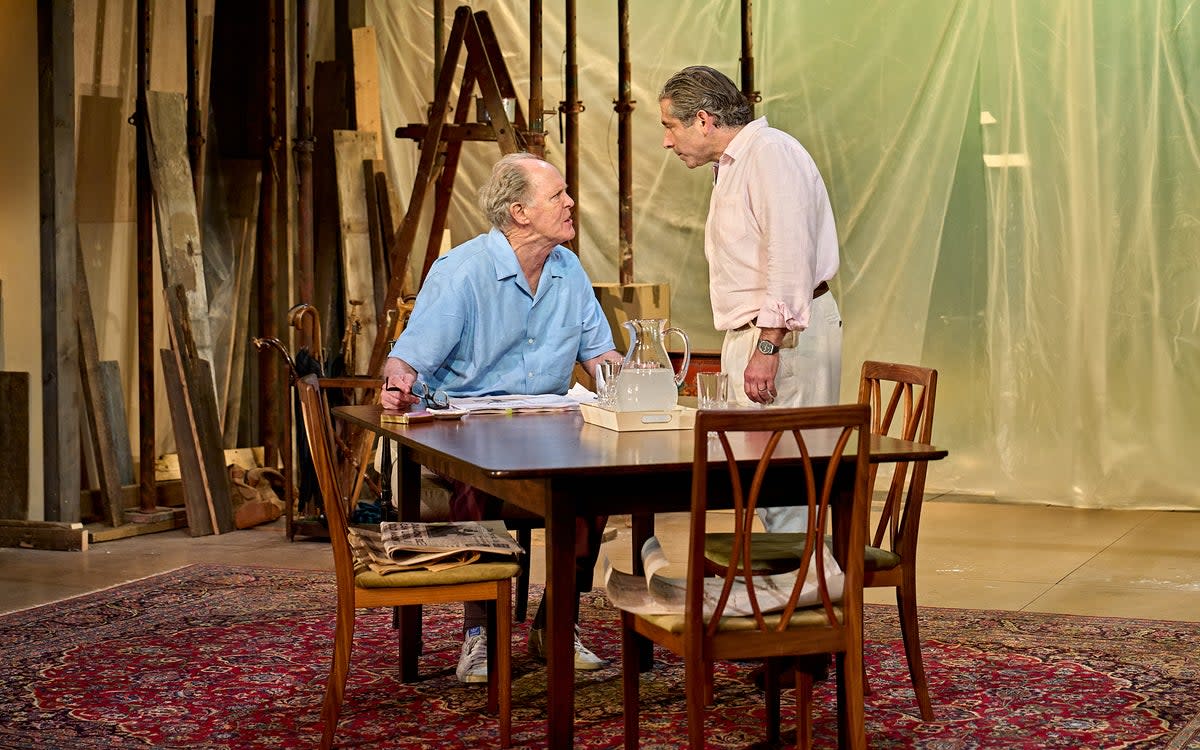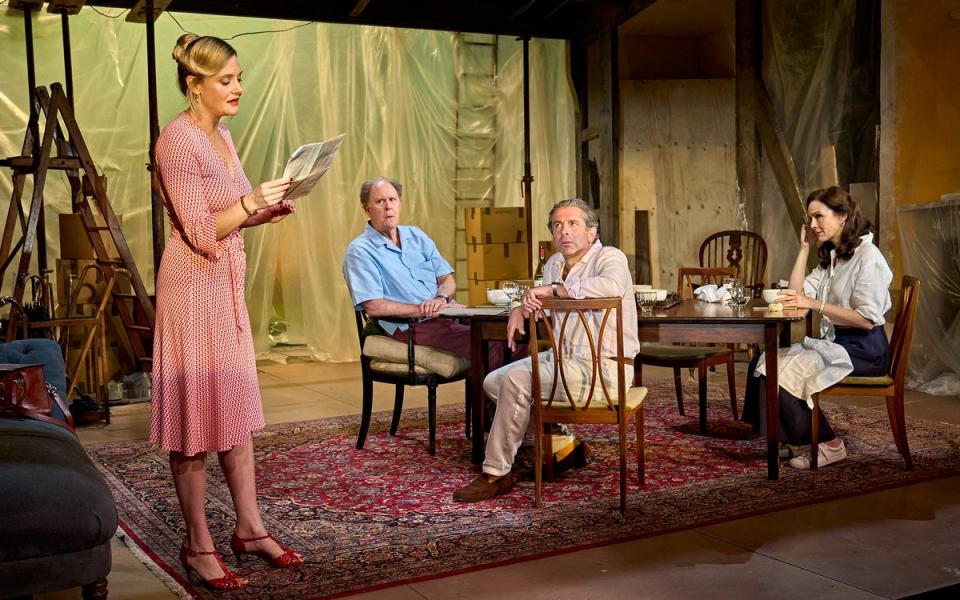Giant at the Royal Court review: shocking, challenging Roald Dahl play is spectacularly good

There can’t be many authors whose reputation has been so assiduously protected as Roald Dahl. Beloved, brilliant, endlessly and lucratively adapted, he still sells in the millions. “I’m a direct sort,” the big friendly giant says to his Jewish publisher in a play set over the course of two hours on a hot afternoon in 1983. “How do you feel about Israel?”
Oof. Mark Rosenblatt’s debut play isn’t afraid to go there, and way beyond. Head-on, unflinchingly, Giant confronts the vile antisemitism of one of the most beloved children’s authors of all time, while sweeping along in its ferocious cross-currents of dialogue all the pitched battles of society today: authors with controversial opinions, art versus artist, complicity and silence, the ways we protect the powerful. It’s hard to think when the Royal Court last staged a play that felt so dangerous, or one so spectacularly good.
Yet it’s all come from unexpected directions. Director supremo Nicholas Hytner runs his own theatre, the Bridge, and yet chooses to direct this play at the Royal Court. Rosenblatt has a successful career as a director himself, but turns to playwriting with a play that many theatres would cavil at – and the Royal Court itself is still repairing the damage from an antisemitism controversy in 2022. A weird mix of things, and just as in Dahl’s books, magic happens. It’s shocking, challenging, uncomfortable.
Dahl’s Buckinghamshire house is being renovated. He’s just divorced his wife and is about to marry his long-term lover. He’s putting the finishing touches to The Witches. He’s also just written a review of a book called God Cried, an account of the 1982 siege of Lebanon by the Israeli Army. His review is thick with antisemitism, and Rosenblatt imagines a scenario in which his British publisher Tom Maschler – real – and his American publisher Jessie Stone – made up – visit Dahl to discuss the fallout.
In a casting coup, John Lithgow plays Dahl, brimful of charm (and he looks uncannily similar to the author. There’s a bit of Victor Meldrew to him, pained expressions and permanently irritated, but he’s also witty and wise. He’s always on, always making a joke, talking with the same panache that fills his writing. Though Lithgow gives him a stiffness – he’s clearly in physical pain – there’s also a sense of restless motion. He never quite sits still or settles.

And it’s all good fun, seeing this quasi-mythical author come to life in his half-decorated home, being propped up by scaffolds and dustsheets. Until he starts grilling Stone about whether she’s Jewish. A sudden streak of awkwardness, a stiffening in the audience, and a stillness too. Dahl remains the charming gent, but as the play goes on and we hear pretty much verbatim the things he wrote and said about Jewish people, the charm isn’t quite so charming.
Rosenblatt’s fearless script is one thing, but it’s made extraordinary by the performances. Lithgow dominates, certainly, but it’s really an ensemble piece. Romola Garai plays Jessie Stone, and though her character is a fiction, and a useful dramatic foil for Dahl, Garai brings her completely alive. She holds herself tightly, apologetically, like she’s on the verge of throwing up at any moment, but there’s also a profound dignity to her, especially when in a quavering voice she defends Jewish people against Dahl’s outrageous statements.
Elliot Levey is the opposite: laidback and apparently “submissive” (one of the words Dahl used to describe Jews), seemingly choosing to swallow his principles in order to appease and protect Dahl. Rachael Stirling plays Dahl’s lover Liccy, a desperate peacemaker, whose primary objective is to protect the author. That’s the other brilliant strand in Rosenblatt’s play: the way the walls go up when someone powerful is under attack. Protect at all costs.
The play is kind of old-fashioned, kind of trad, and as un-Dahl like as you can get. For a man whose work was all about the grotesque and the fantastical, this is a staunchly realist piece. It’s a dining room drama, a play of chats, of arguments thrashed out in posh English accents. Except, as Dahl doubles down, it becomes clear that there is grotesquery, ugliness, villainy. It’s in Dahl’s own attitudes and words.
Dahl is unequivocally antisemitic, but Rosenblatt isn’t interested in simply attacking him. He shows us a Dahl who is as compassionate as he is capricious; whose actions are both childlike – especially his earnest love for children – and also childish. He is deeply principled about the suffering of Palestinians, to the point of vituperative racism against Jews.
Two hours, pretty much in real time, about one article by a famous children’s author in 1983. And that’s precisely what is so good about Rosenblatt’s play: that it’s so tightly focused, and so colossally universal. It’s all there, in a crumbling dining room 40 years ago, a grim reflection of a world still stuck in the same currents of conflict, with no resolution in sight.
Royal Court Theatre, to November 16; royalcourttheatre.com


